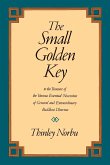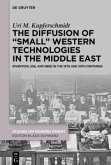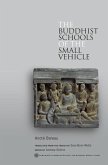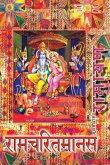Small Sacrifices is an ethnographic study of Ngaju Dayaks, rain forest dwellers of the remote interior region of Central Kalimantan, Indonesian Borneo. Like many indigenous peoples throughout the world, the Ngaju have recently been affected by exposure to world religions, by improvements in
transportation and communication, by new demands on family-based production, and by other factors pertaining to their growing incorporation into an expanding state system in an era of rapid political and economic change. The Ngaju response to these pressures, Anne Schiller contends, is most clearly
seen in the religious sphere. Over the past two decades, many Ngaju have taken to recasting and reinterpreting their indigenous religion, known formerly as Kaharingan, and now as Hindu Kaharingan. Paradoxically, this process of religious change involves the codification of religious belief and the
standardization of ritual. It also includes efforts to distinguish "religious practices" from other "customs." These developments figure importantly in the construction of modern Ngaju identity. The author focuses especially on the form and content of tiwah$, an elaborate ritual of secondary
treatment of the dead, with multiple and complex meanings for Hindu Kaharingan Ngaju, as well as for those who have converted to Christianity or Islam.
This ethnographic study shows how the Ngaju Dyaks, rain forest dwellers of Central Kalimantan (Indonesian Borneo) are responding to modernity. It depicts how they are attempting to fashion a modern identity for themselves, especially by remodelling their indigenous religion.
Hinweis: Dieser Artikel kann nur an eine deutsche Lieferadresse ausgeliefert werden.
transportation and communication, by new demands on family-based production, and by other factors pertaining to their growing incorporation into an expanding state system in an era of rapid political and economic change. The Ngaju response to these pressures, Anne Schiller contends, is most clearly
seen in the religious sphere. Over the past two decades, many Ngaju have taken to recasting and reinterpreting their indigenous religion, known formerly as Kaharingan, and now as Hindu Kaharingan. Paradoxically, this process of religious change involves the codification of religious belief and the
standardization of ritual. It also includes efforts to distinguish "religious practices" from other "customs." These developments figure importantly in the construction of modern Ngaju identity. The author focuses especially on the form and content of tiwah$, an elaborate ritual of secondary
treatment of the dead, with multiple and complex meanings for Hindu Kaharingan Ngaju, as well as for those who have converted to Christianity or Islam.
This ethnographic study shows how the Ngaju Dyaks, rain forest dwellers of Central Kalimantan (Indonesian Borneo) are responding to modernity. It depicts how they are attempting to fashion a modern identity for themselves, especially by remodelling their indigenous religion.
Hinweis: Dieser Artikel kann nur an eine deutsche Lieferadresse ausgeliefert werden.








